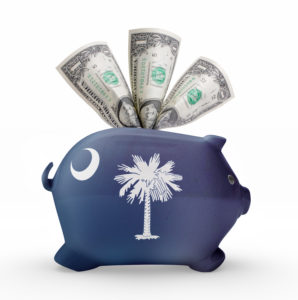
States are continuing to come up with ways to collect sales tax from online sellers (specifically Amazon’s third-party sellers). South Carolina recently filed a motion in court to force Amazon to collect these taxes and fees on behalf of its third-party sellers.
As it is now, Amazon collects sales tax on items purchased directly from them, but the retail giant does not collect it on sales made on the site by a third party. South Carolina is claiming it could lose more than $500 million in sales tax if Amazon doesn’t begin collecting them now, and is asking the court to require the retailer to charge sales tax and put it into a trust or escrow-type account until the case is settled.
South Carolina’s Argument for Amazon Collecting Sales Tax
The state is most concerned with receiving the sales tax they’re owed. Someone owes it to them, and they’ve chosen to pursue Amazon for it (rather than numerous third-party sellers or the ultimate consumers).
Why have Amazon put funds into a trust right now? The state is considering that, should Amazon win the case and it’s determined third-party sellers are responsible for the years of back sales tax, those small businesses likely wouldn’t be able to handle the financial hit. As this article explains:
If sales tax is currently placed into a trust, South Carolina proposes, then the funds will be there so that either:
- The sales tax funds can be remitted to South Carolina’s Department of Revenue immediately if they win the lawsuit against Amazon
- 3rd party Amazon sellers aren’t substantially harmed by having failed to collect sales tax in the event that South Carolina loses the lawsuit against Amazon
Amazon’s Argument Against Collecting Sales Tax
Amazon is claiming they aren’t responsible for South Carolina’s sales tax because it falls to the third-party sellers. As CBS News reports, “Amazon has argued for years that the independent merchants are responsible for remitting and collecting all taxes on their own sales.”
However, the company realizes this is a battle it’s fighting on many fronts. In addition to this South Carolina case, which CBS News says, “Could result in it being ‘subject to significant additional tax liabilities,'” the company worked out a deal to begin collecting sales tax from third-party sellers in Washington state beginning January 1, a judge in Massachusetts ordered the retailer to identify all third-party sellers with nexus in its state and other states across the country have court cases and legislation looming that will affect the way Amazon conducts business.
Our Take on This Sales Tax Approach
While we think this is an interesting approach for South Carolina to take, especially with requiring Amazon to collect sales tax now and put it into a trust to sort out later, we do think it’s a bit of a stretch. While it does take the burden away from smaller retailers (which we like), it also doesn’t follow a “normal” approach to collecting sales tax from sellers. It will be interesting to see how the South Carolina courts rule on this issue. In any case, it’s further evidence of how states are getting more aggressive on all fronts. While we’ve been seeing that in general for many years, the last 18 months have shown the states to be even more creative in how they are going about collecting sales taxes. Stay tuned for the next rendition…coming soon (we’re sure of it!).
Miles Consulting Group, Inc. is a professional service firm in San Jose, California specializing in multi-state tax solutions. Our firm addresses state and local tax issues for our clients, including general state tax consulting, nexus reviews, tax credit and tax incentive maximization, income tax and sales/use tax planning and other special projects. To learn more, contact us today at www.MilesConsultingGroup.com.


















